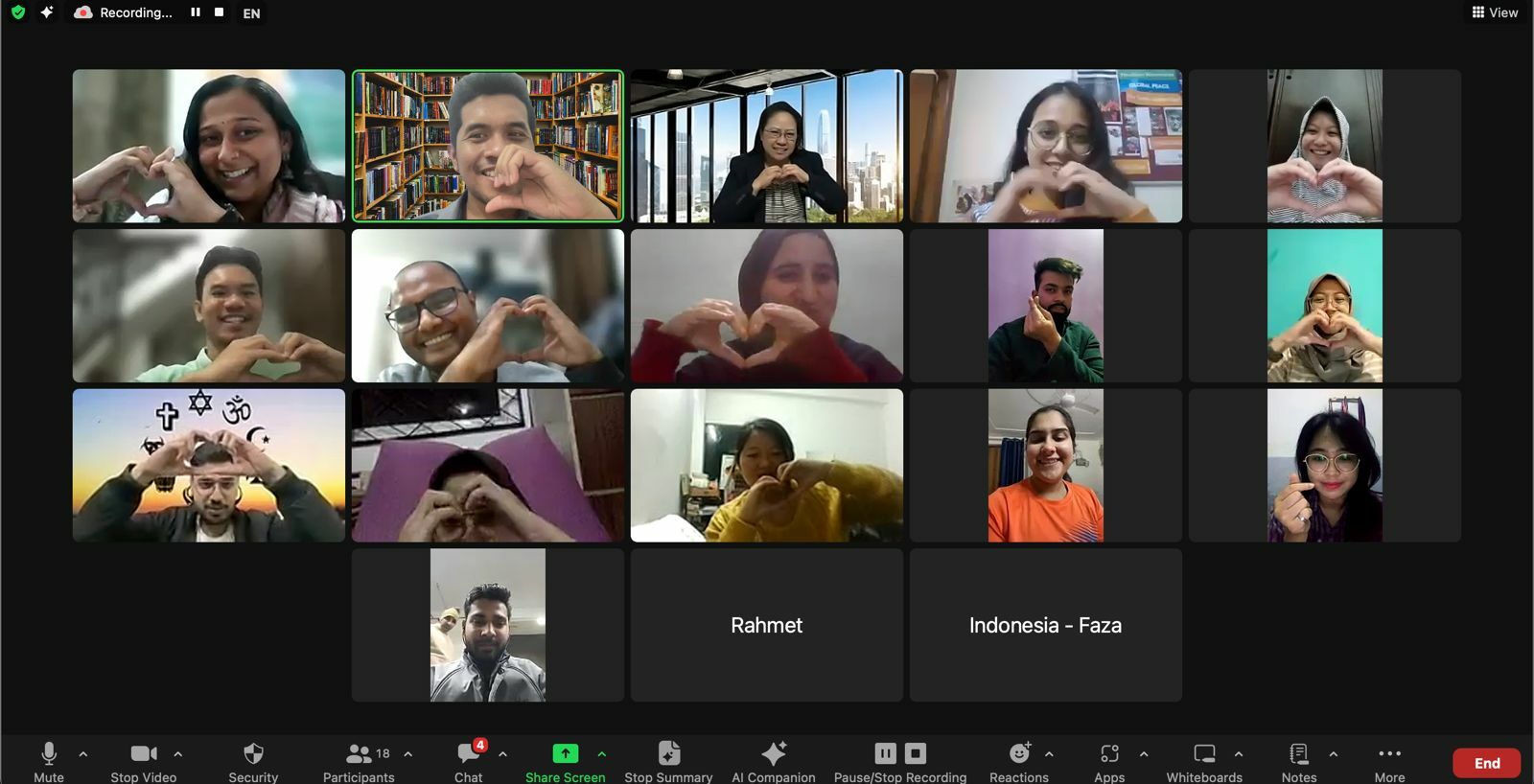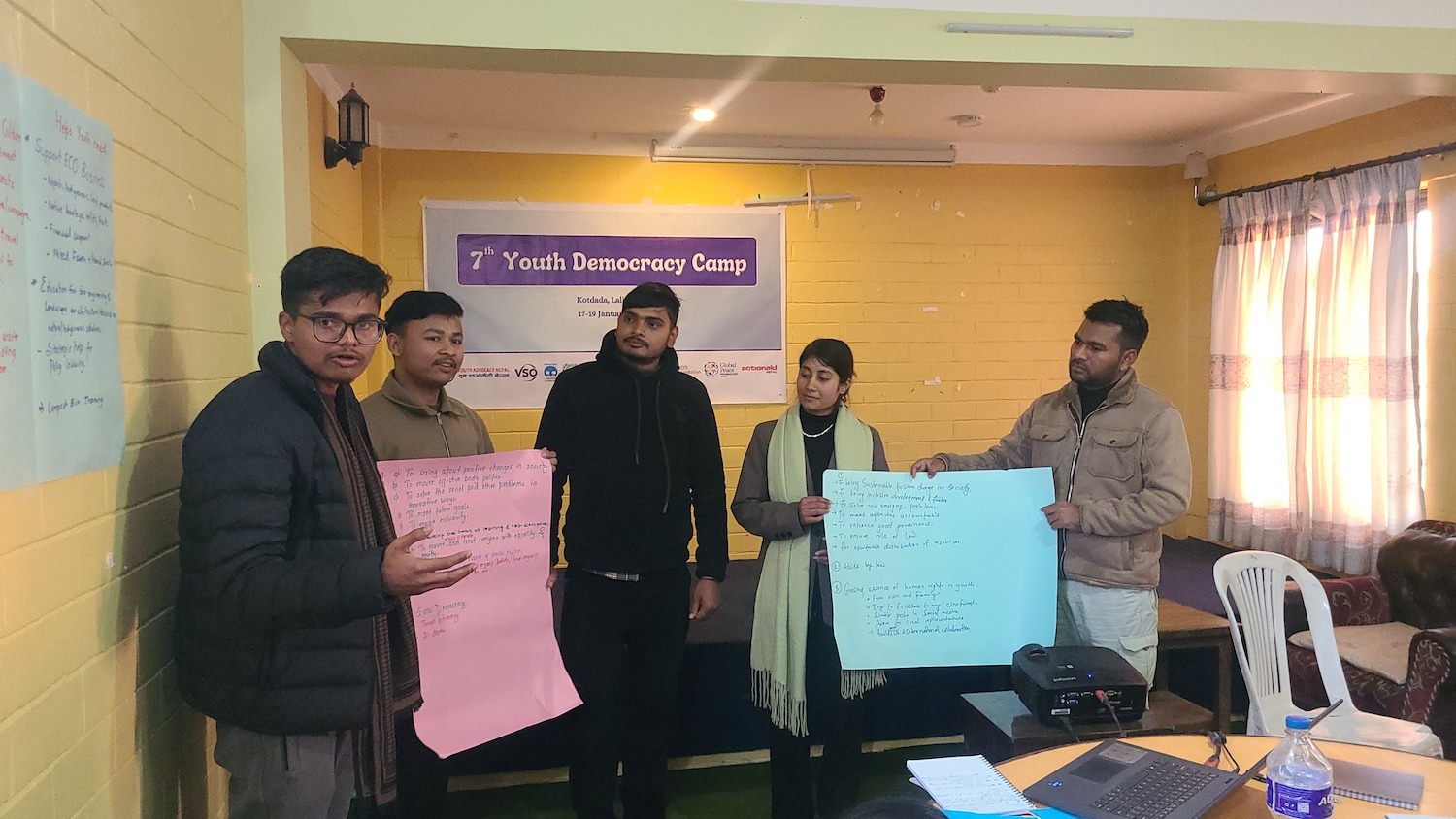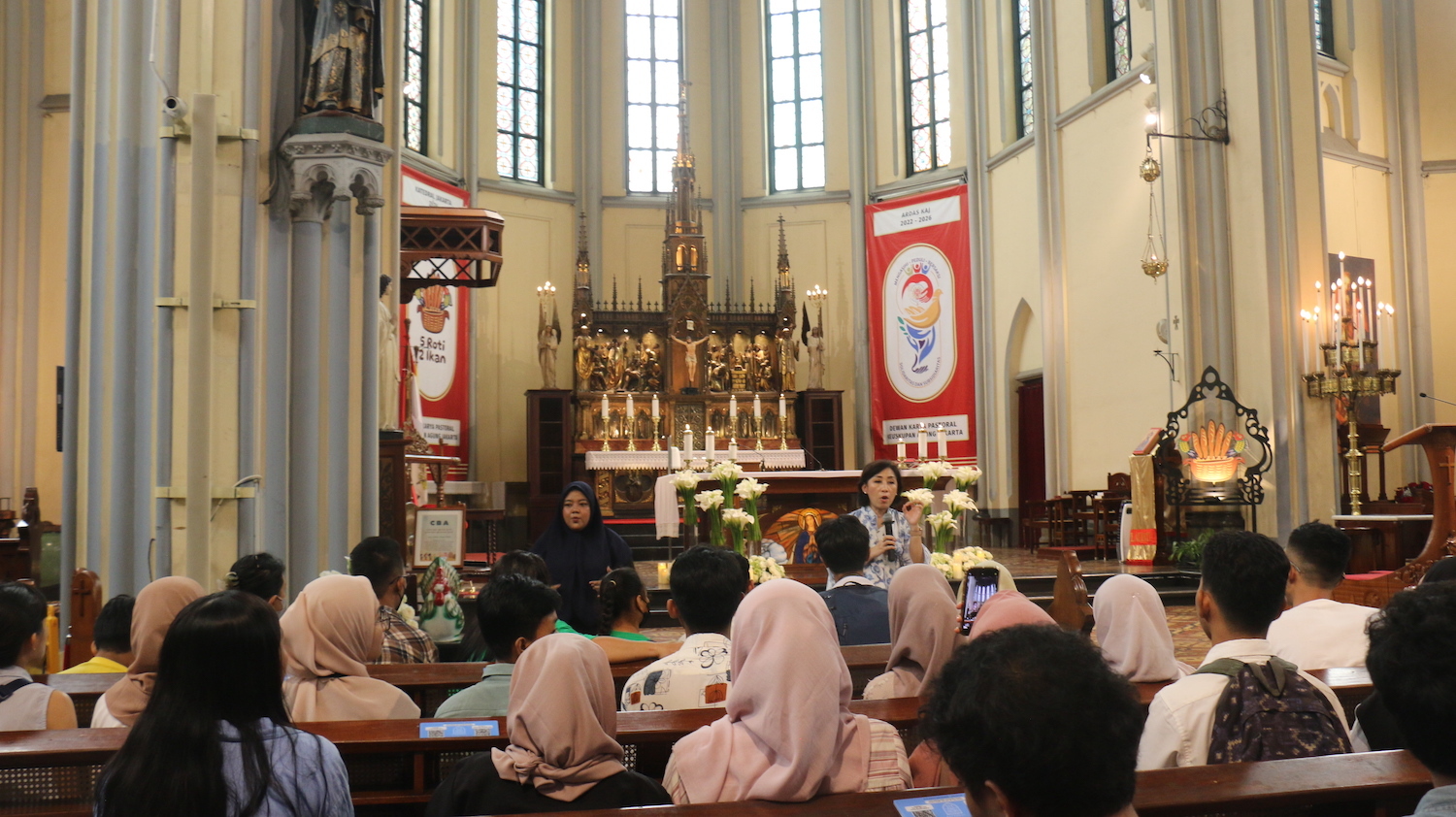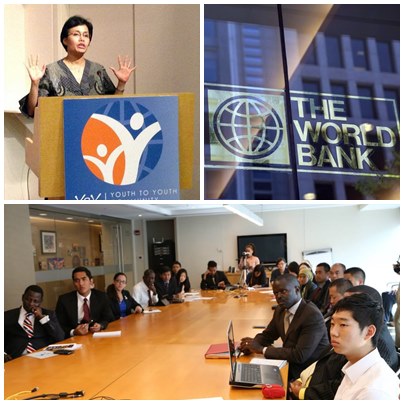
World Bank managing director Sri Mulyani Indrawati (top left) addresses participants of the International Young Leaders Assembly in Washington.
WASHINGTON, DC – Leadership is challenging, but today’s young generation will have to exercise more of it. This was the message to the 150 international young professionals and student leaders attending forums on service and entrepreneurship at the World Bank Monday.
“A leader must be like an eagle and fly alone,” said World Bank managing director Sri Mulyani Indrawati in welcoming the group. “If you want to be a duck, stick with your friends.” She stressed that leaders need a strong moral compass, drawing on her experience as Indonesia’s finance minister when her efforts against corruption earned her criticism from her peers.
The forums were part of the 2nd International Young Leaders Assembly, a program on “Moral and Innovative Leadership: Vision, Service, and Entrepreneurship,” held in New York, Philadelphia, and Washington, DC. The program drew 800 participants from 75 countries over the course of its nine days.
Sri Indrawati said that “moral” and “innovative” in connection with leadership, are very important terms, noting that technology allows many more innovative approaches to pursuing moral goals. She gave the example of information technology which allowed much greater transparency, an important tool in fighting corruption.
Speakers noted that this is the largest generation of youth the world has ever known and that following past patterns of job creation could not employ them all. The young will have to play a much greater role in building their own futures, and entrepreneurship and volunteerism will be central to that process.
“Volunteerism is at the heart of good governance” and is part of creating engaged and participatory democracy.
Concetta Bencivenga of generationOn, a Points of Light initiative, reminded participants that Dr. Martin Luther King and Mahatma Gandhi had started their campaigns for justice at the ages of 26 and 24 respectively. Points of Light is a co-convenor of the IYLA program.
“Informed, engaged, participatory young leaders are important for the future,” said Rita Karakas, president of Canada World Youth. They are a source of transformational leadership and can be agents of social change. “Volunteerism,” she continued, “is at the heart of good governance” and is part of creating engaged and participatory democracy.
Speakers highlighted the need for education to have practical application. “Education needs to be more than crowding children into a classroom where they learn to conjugate verbs,” said Willice Onyango, president of Kenya’s International Youth Council.
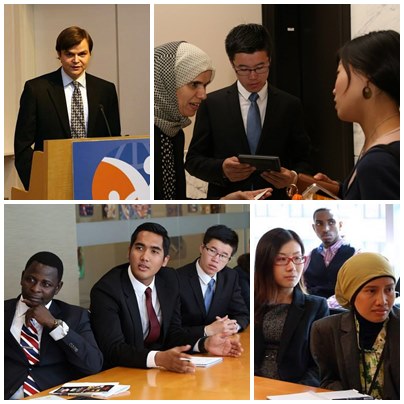
Brano Kralik, Co-Secretary General, World Bank Youth to Youth (top left) speaks to IYLA participants.
Evans Gor Semalango, chair of Kenya’s National Youth Enterprise Fund, said that book-learning does not produce successful entrepreneurs. They need problem-solving capabilities, creativity and an eye for innovation. Several speakers highlighted the impact of technological innovation, particularly mobile phones, in countries like Kenya, Uganda and Indonesia.
In these countries and others, telecommunications had “leapfrogged” directly to wireless networks, avoiding the need for the extensive infrastructure needed for landline phones. As a result simple farmers could make payments, research remedies for crop disease, and compare prices for their crops, all from an instrument held in their hands.
But technology alone did not advance development. The World Bank’s Aleem Walji said that a major innovation was taking models from the business world and applying them to providing goods and services to the poor. Shannon Maynard of the Grameen Foundation stressed the importance of human networks within which new technologies could be effective.
The International Young Leaders Assembly concludes on August 28 with a forum on Dr. Martin Luther King, Jr.’s leadership model and a celebration of the fiftieth anniversary of King’s “I Have a Dream” speech at the Lincoln Memorial, with President Barack Obama and other U.S. political and civil rights leaders.

